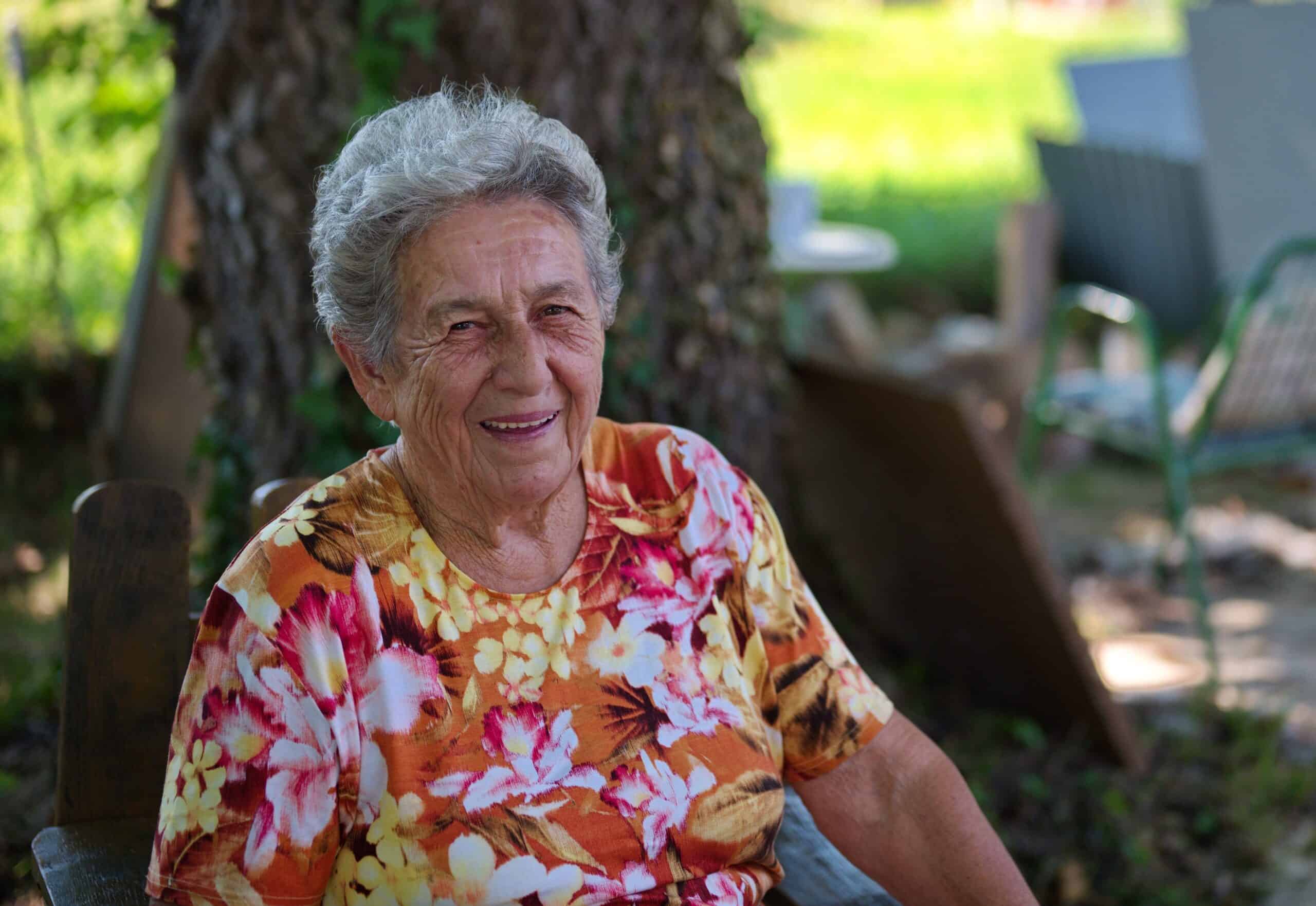Background Story VIIII
Milford was a kindly, highly intelligent man before his brain was ravaged by Alzheimer’s. Even in the short time he lived with us, I saw him become increasingly aggressive. Marjorie told me that he was determined to go down the stairs, where we had installed a strong oak gate. When Marjorie tried to prevent him from going down the stairs (in a wheelchair), he yelled at her and drew his fist back as if to strike her. She retaliated with more yelling and he retreated. We put a chain and padlock on the gate. When I saw him approach the gate and pull and rattle it to try to get it open, I called to him to help me cut out some coupons, or some other activity. Redirecting Milford seemed to work best for me.
Marjorie complained each day about Milford wetting the bed at night, so a month after they moved in, I gave up my office to turn it into a bedroom for Milford. The VA gave us a hospital bed and I decorated the room with things I thought Milford would like. Bedtime was another trigger for Milford’s aggression. He did not want to sleep by himself. He did not strike me, but there were times I felt threatened. In the middle of the night or early in the morning he would punch the wall and yell “Get me out of here!” because he could not get himself out of the hospital bed that the VA had given us. Sometimes redirecting was not an option.
After my bout with the flu and Milford’s ensuing nursing home placement, our new normal changed. Nothing seemed normal after that.
I don’t know how well the staff at the nursing home was trained in dementia care in 2008. I know there have been educational and training advances since then, but I can only hope that the administration makes sure that each staff person understands the many forms of dementia and the best approaches for dealing with it. “The Best Friends Approach” by Virginia Bell and David Troxell has received world acclaim for the novel methods for caring for those with dementia. At it’s core, it advocates treating the one with dementia as if they were human, with emotions, thoughts and worth. How novel.
Which reminds me of some of the comments I received when I was taking care of Milford. People in our culture treat dogs better than we do our elderly dementia sufferers. Our society spends millions of dollars and hours caring for our pets, but are we willing to spend the same on our elderly?
I took Marjorie to visit Milford whenever she wanted to go, but strangely, she did not want to go very often. It was as if she had already moved on. Perhaps it was just too painful for her. Or perhaps she was afraid that if she went to visit him they might not let her go home. As I look back, I realize it was after one visit when Milford said he wanted to come home with us, as usual. Lawrence and I said he needed to stay there and get better while we took care of Mom at our house. He knew about her bad leg. He had called us back in 2006 to tell us about her leg and how he was taking her to the doctor in Elmira once a week. We thought it had been taken care of until they moved in with us. He said, “I want to get out of here so I can take care of Mom too.” Lawrence and I made the mistake of telling him he needed to walk before he could take care of Mom. After that visit he tried to get out of his wheelchair and walk, falling and causing the staff a lot of trouble.
On one of our visits to see Milford at the nursing home, he said, “See that big guy over there? I punched him in the stomach”. I asked why, but he could not tell me.
On another visit, I joined Milford for dinner. They seated everyone at round tables of six to ten people. We just sat there for over an hour. Milford was hungry and got more and more agitated. He said, “I am going to throw this if they don’t bring me some food” and he picked up the fake flower arrangement in the middle of the table. I talked and joked him out of it, but it was very frustrating to watch the staff slowly serve the large dining room full of people while we waited and waited. I did not eat with him after that, but mentioned the problem at a care plan meeting and Milford was served in his room from then on.
While I was caring for Milford, I noticed he always became agitated when he needed to have a bowel movement, so I would take him to the bathroom. Problem solved. At the nursing home, the staff changed so often and there were so few of them to go around, that no one realized that Milford needed to be helped to the bathroom. I think much of his aggression could be attributed to that simple problem.
He knocked over their large glass bird cage on more than one occasion. He also liked to reach in and try to grab a bird.
Then we got a phone call that Milford had grabbed another resident’s arm and would not let go. She cried out in pain and it left a mark. They sent Milford to a behavioral health facility in Jeffersonville, IN, and we would be billed. A lot. That happened twice. Fortunately, we now have a behavioral health center for the elderly here in Lexington.
Once we came to visit and all Milford had on was shorts, a polo shirt, his hat, and slippers. It was chilly in the nursing home and I asked Milford if he was cold but he was uncommunicative at that point. I could not find any clothes in his room, so I put a blanket on his lap.
He had problems with his hospital bed and his African American roommate, so they put Milford on a mattress on the floor in a private room to sleep after he had been there about a month. That is where Lawrence found him three months later, semi seated, leaning on the wall, dead. The nursing home had called Lawrence to notify him and helped him know what to do next. It was a very sad time, and confusing because we had no experience with final arrangements, and Milford and Marjorie had not made any plans.
They did not have any money, so we thought the Veteran’s burial ground in Wilmore would be a good choice. Lawrence’s brother had other plans. He wanted the body taken to Indianapolis, which cost about a thousand dollars. They bought an expensive burial plot for the whole family and planned a beautiful funeral. Our oldest son, who was on an aircraft carrier as a Naval Nuclear Engineer, was flown to Lexington thanks to a phone call I made to the Red Cross. Many other long distance family members came to the funeral. It was a good closure for a life well lived.
Next week: The Failed Coordination of Care for Mother Gridley
The post Background Story VIIII appeared first on Aging With Grace.






